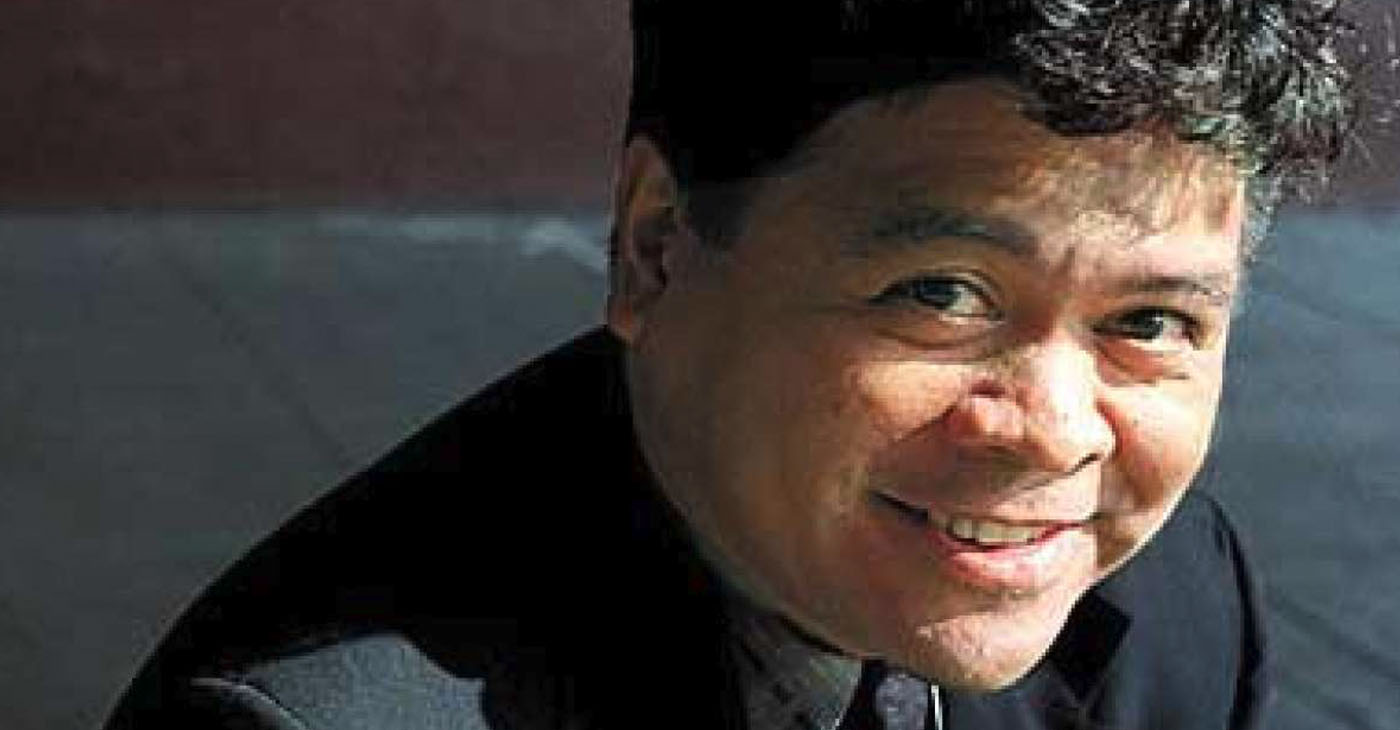Commentary
OPINION: The Common Theme of High-Profile Shootings: Mental Health
The supermarket shooting in Buffalo, N.Y., was like an echo of Christchurch, only this time the accused is teenager Payton Gendron. Ten African Americans were shot and killed in a hateful event driven by what President Joe Biden called the “poison” of White Supremacy.

By Emil Guillermo
America is trying to let the three most publicized shooting incidents of the last month fade away.
We can’t afford to let that happen again. Not after Orlando. Las Vegas. Atlanta. Not to mention Christchurch, New Zealand. But of course, we’ve forgotten them all.
The supermarket shooting in Buffalo, N.Y., was like an echo of Christchurch, only this time the accused is teenager Payton Gendron. Ten African Americans were shot and killed in a hateful event driven by what President Joe Biden called the “poison” of White Supremacy.
The coda to Buffalo was followed the next day by a shooting at a Taiwanese church service in Laguna Woods, in the Orange County/Los Angeles area. David Wenwei Chou, 68, is accused in the shooting of six people, one fatally. Chou had sent a diary to the Los Angeles office of the World Journal indicating he was against Taiwan’s independence and believed in “one China.”
And then there was an arrest in Dallas on Tuesday for a shooting the previous week. Jeremy Theron Smith, 37, is being held in connection with the shooting of three Asian Americans in a Koreatown hair salon. His girlfriend reportedly told police Smith had problems after having been in an auto accident involving an Asian American.
All three shootings involved guns and some degree of racial or political hate.
But the Smith case in Dallas shows the real common thread: mental health.
According to Smith’s arrest affidavit, his girlfriend told police Smith was having “delusions that an Asian mob is after him or attempting to harm him.” It’s the evolution of #StopAAPIHate, after two years of being scapegoated for the virus, we’re being stalked based on xenophobic fantasies.
By comparison, Buffalo was far less sophisticated. It was old-fashioned Black/white racism that provided a comfort level for Gendron, who proudly displayed anti-Black symbols and slogans on his weapons.
Gendron was brought to a Buffalo hospital by state police for mental evaluation in June of 2021 after writing that he wanted to shoot people. He was released a day and a half later with no further evaluation.
The church shooter Chou was based in Las Vegas and found himself at the end of his rope.
Chou’s wife was diagnosed with cancer and left him to return to Taiwan. He lost the four-unit building he and his wife owned, was barely employed, homeless, and according to a neighbor, showed signs of mental instability. Balmore Orellana, who lived next door to Chou, told the Los Angeles Times, “He told me, ‘I just don’t care about my life anymore.’”
Suicidal ideation? No one was there to help Chou figure it out.
But who was there to stop and help Smith in Dallas? His girlfriend apparently could see the signs, but not enough to intervene.
In Gendron’s case in Buffalo, police had taken the suspect to a mental hospital. But now it appears that a day and a half of evaluations was not nearly enough.
No one took mental health seriously.
Certainly not the folks who market in guns. All three shooters were well armed. What if, instead of guns, they had greater access to care?
Would our society rather pay for that instead of funerals?
It’s a coincidence that May is both Asian American Native Hawaiian Pacific Islander Heritage Month, and Mental Health Awareness Month.
Understanding our nation’s great diversity is important.
But it’s also important to pay attention to how we as human beings deal with our stresses and anxieties, and how that impacts our thoughts and actions toward ourselves and one another.
That’s mental health.
How we deal with it makes a difference as we brace ourselves for the next Gendron, Smith, or Chou.
Because these are not all one-offs. We will see these situations again if we don’t pay attention and start caring.
NOTE: I will talk about this column and other matters on “Emil Amok’s Takeout,” my micro-talk show. Live at 2 p.m. Pacific. Livestream on Facebook; my YouTube channel; and Twitter. Catch the recordings on www.amok.com.
Activism
Oakland Post: Week of April 17 – 23, 2024
The printed Weekly Edition of the Oakland Post: Week of April 17 – 23, 2024

To enlarge your view of this issue, use the slider, magnifying glass icon or full page icon in the lower right corner of the browser window. ![]()
Commentary
Opinion: Surviving the Earthquake, an Eclipse and “Emil Amok.”
Last Friday, a 4.8 magnitude earthquake shook New York City, reported as the “biggest earthquake with an epicenter in the NYC area since 1884” when a 5.2 quake hit. A bit bigger. The last quake similar to Friday’s was a 4.9 in 1783.Alexander Hamilton felt it — 241 years ago. That’s why New Yorkers were freaking out on Friday. They were in the room where it happens.

By Emil Guillermo
I’m a Northern Californian in New York City for the next few weeks, doing my one-man show, “Emil Amok, Lost NPR Host, Wiley Filipino, Vegan Transdad.”
I must like performing in the wake of Mother Nature.
Last Friday, a 4.8 magnitude earthquake shook New York City, reported as the “biggest earthquake with an epicenter in the NYC area since 1884” when a 5.2 quake hit. A bit bigger. The last quake similar to Friday’s was a 4.9 in 1783.
Alexander Hamilton felt it — 241 years ago.
That’s why New Yorkers were freaking out on Friday. They were in the room where it happens.
And it just doesn’t happen that often.
Beyonce singing country music happens more frequently.
When I felt New York shake last week, it reminded me of a time in a San Francisco TV newsroom when editors fretted about a lack of news an hour before showtime.
Then the office carpeting moved for a good ten seconds, and the news gods gave us our lead story.
On Friday when it happened in NYC, I noticed the lines in the carpeting in my room wiggling. But I thought it was from a raucous hotel worker vacuuming nearby.
I didn’t even think earthquake. In New York?
I just went about my business as if nothing had happened. After living near fault lines all my life, I was taking things for granted.
Considering the age of structures in New York, I should have been even more concerned about falling objects inside (shelves, stuff on walls) and outside buildings (signs, scaffolding), fire hazards from possible gas leaks, and then I should have looked for others on my floor and in the hotel lobby to confirm or aid or tell stories.
Of course, as a Californian who has lived through and covered quakes in the 4 to 6 magnitude range, I tried to calm down any traumatized New Yorker I encountered by taking full responsibility for bringing in the quake from the Bay Area.
I reassured them things would be all right, and then let them know that 4.8s are nothing.
And then I invited them to my consoling post-Earthquake performance of “Emil Amok, Lost NPR Host…”
It was the night of the eclipse.
ECLIPSING THE ECLIPSE
In New York City, the eclipse was about 90 percent visible. Good enough for me. Though a full solar eclipse is a celestial rarity, blockages of any sort aren’t generally celebrated. My one-man play is about growing up with the eclipsed history of American Filipinos and how I struggle to unblock all that.
For example, did you know the first Filipinos actually arrived to what is now California in 1587? That’s 33 years before the Pilgrims arrived in America on the other coast, but few know the Filipino history which has been totally eclipsed.
I was in Battery Park sitting on a bench and there was a sense of community as people all came to look up. A young woman sitting next to me had a filter for a cell phone camera. We began talking and she let me use it. That filter enabled me to take a picture of the main event with my iPhone.
For helping me see, I invited her and her boyfriend to come see my show.
Coincidentally, she was from Plymouth, Massachusetts, near the rock that says the year the Pilgrims landed in 1620.
In my show she learned the truth. The Pilgrims were second.
History unblocked. But it took a solar eclipse.
Next one in 2044? We have a lot more unblocking to do.
If you’re in New York come see my show, Sat. April 13th, 5:20 pm Eastern; Fri. April 19, 8:10 pm Eastern; and Sun. April 21st 5:20 pm Eastern.
You can also livestream the show. Get tickets at www.amok.com/tickets
About the Author
Emil Guillermo is a journalist and commentator. He does a mini-talk show on YouTube.com/@emilamok1. He wishes all his readers a Happy Easter!
Commentary
Commentary: Republican Votes Are Threatening American Democracy
In many ways, it was great that the Iowa Caucuses were on the same day as Martin Luther King Jr. Day. We needed to know the blunt truth. The takeaway message after the Iowa Caucuses where Donald Trump finished more than 30 points in front of Florida Gov. De Santis and former South Carolina Governor Nikki Haley boils down to this: Our democracy is threatened, for real.

By Emil Guillermo
In many ways, it was great that the Iowa Caucuses were on the same day as Martin Luther King Jr. Day.
We needed to know the blunt truth.
The takeaway message after the Iowa Caucuses where Donald Trump finished more than 30 points in front of Florida Gov. De Santis and former South Carolina Governor Nikki Haley boils down to this: Our democracy is threatened, for real.
And to save it will require all hands on deck.
It was strange for Iowans to caucus on MLK day. It had a self-cancelling effect. The day that honored America’s civil rights and anti-discrimination hero was negated by evening.
That’s when one of the least diverse states in the nation let the world know that white Americans absolutely love Donald Trump. No ifs, ands or buts.
No man is above the law? To the majority of his supporters, it seems Trump is.
It’s an anti-democracy loyalty that has spread like a political virus.
No matter what he does, Trump’s their guy. Trump received 51% of caucus-goers votes to beat Florida Gov. Ron DeSantis, who garnered 21.2%, and former South Carolina Gov. Nikki Haley, who got 19.1%.
The Asian flash in the pan Vivek Ramaswamy finished way behind and dropped out. Perhaps to get in the VP line. Don’t count on it.
According to CNN’s entrance polls, when caucus-goers were asked if they were a part of the “MAGA movement,” nearly half — 46% — said yes. More revealing: “Do you think Biden legitimately won in 2020?”
Only 29% said “yes.”
That means an overwhelming 66% said “no,” thus showing the deep roots in Iowa of the “Big Lie,” the belief in a falsehood that Trump was a victim of election theft.
Even more revealing and posing a direct threat to our democracy was the question of whether Trump was fit for the presidency, even if convicted of a crime.
Sixty-five percent said “yes.”
Who says that about anyone of color indicted on 91 criminal felony counts?
Would a BIPOC executive found liable for business fraud in civil court be given a pass?
How about a BIPOC person found liable for sexual assault?
Iowans have debased the phrase, “no man is above the law.” It’s a mindset that would vote in an American dictatorship.
Compare Iowa with voters in Asia last weekend. Taiwan rejected threats from authoritarian Beijing and elected pro-democracy Taiwanese vice president Lai Ching-te as its new president.
Meanwhile, in our country, which supposedly knows a thing or two about democracy, the Iowa caucuses show how Americans feel about authoritarianism.
Some Americans actually like it even more than the Constitution allows.
About the Author
Emil Guillermo is a journalist and commentator. He does a mini-talk show on YouTube.com/@emilamok1.
-

 Activism4 weeks ago
Activism4 weeks agoOakland Post: Week of March 27 – April 2, 2024
-

 #NNPA BlackPress4 weeks ago
#NNPA BlackPress4 weeks agoCOMMENTARY: D.C. Crime Bill Fails to Address Root Causes of Violence and Incarceration
-

 #NNPA BlackPress4 weeks ago
#NNPA BlackPress4 weeks agoMayor, City Council President React to May 31 Closing of Birmingham-Southern College
-

 #NNPA BlackPress4 weeks ago
#NNPA BlackPress4 weeks agoBeloved Actor and Activist Louis Cameron Gossett Jr. Dies at 87
-

 Community1 week ago
Community1 week agoFinancial Assistance Bill for Descendants of Enslaved Persons to Help Them Purchase, Own, or Maintain a Home
-

 Activism3 weeks ago
Activism3 weeks agoOakland Post: Week of April 3 – 6, 2024
-

 Business1 week ago
Business1 week agoV.P. Kamala Harris: Americans With Criminal Records Will Soon Be Eligible for SBA Loans
-

 Activism2 weeks ago
Activism2 weeks agoOakland Post: Week of April 10 – 16, 2024






















































